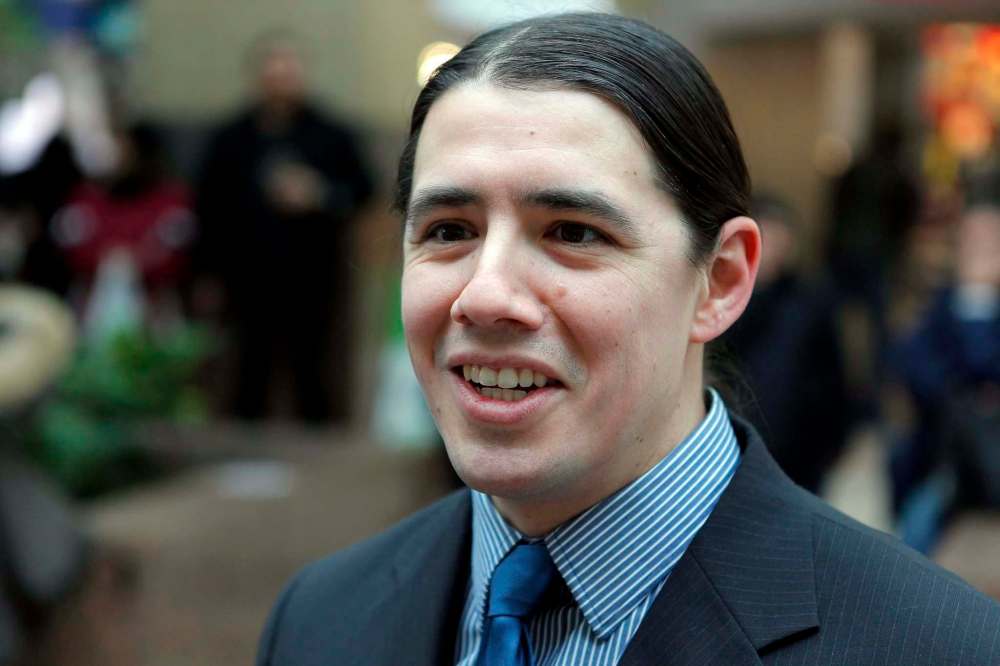‘This is it for Indigenous languages,’ Manitoba MP says in funding plea
Advertisement
Read this article for free:
or
Already have an account? Log in here »
To continue reading, please subscribe:
Monthly Digital Subscription
$0 for the first 4 weeks*
- Enjoy unlimited reading on winnipegfreepress.com
- Read the E-Edition, our digital replica newspaper
- Access News Break, our award-winning app
- Play interactive puzzles
*No charge for 4 weeks then price increases to the regular rate of $19.00 plus GST every four weeks. Offer available to new and qualified returning subscribers only. Cancel any time.
Monthly Digital Subscription
$4.75/week*
- Enjoy unlimited reading on winnipegfreepress.com
- Read the E-Edition, our digital replica newspaper
- Access News Break, our award-winning app
- Play interactive puzzles
*Billed as $19 plus GST every four weeks. Cancel any time.
To continue reading, please subscribe:
Add Free Press access to your Brandon Sun subscription for only an additional
$1 for the first 4 weeks*
*Your next subscription payment will increase by $1.00 and you will be charged $16.99 plus GST for four weeks. After four weeks, your payment will increase to $23.99 plus GST every four weeks.
Read unlimited articles for free today:
or
Already have an account? Log in here »
Hey there, time traveller!
This article was published 27/03/2018 (2807 days ago), so information in it may no longer be current.
OTTAWA — Downtown Winnipeg MP Robert-Falcon Ouellette says paying for Indigenous-language interpretation in the House of Commons could help bring languages such as Cree back from the brink of death.
“We have lost our languages; please help us,” Ouellette told a parliamentary committee last Thursday. “We are nearing the end. This is it for Indigenous languages.”
He was testifying at hearings he had prompted, after addressing the floor of the Commons in Cree last May. Ouellette argued his rights to be understood by fellow parliamentarians were breached by not having live interpretation for MPs.

The House Speaker suggested the procedure committee investigate the issue, which it started doing this month.
Ouellette argued having Indigenous languages heard on television would provide a tool to keep them alive. He said it would help follow a call by the Truth and Reconciliation Commission for Ottawa to help revive some of the languages trampled by residential schools.
“Languages must be used to be useful,” Ouellette said. “Our modern Parliament has a role to play in helping Indigenous Peoples.
“You can add to the scales of justice, ensuring that our Canadian languages, our Indigenous languages, do not become museum pieces relegated to the back of anthropological shelves.”
Fellow MPs on the committee appeared sympathetic to Ouellette’s arguments, but noted they still have to examine the cost and feasibility of such a proposal. Tory MP Scott Reid, who has studied bilingualism in Canada, compared the move to ongoing efforts in Ireland to restore the Gaelic language.
The committee suggested a slow start, such as allowing interpretation for the four most-spoken Indigenous languages in Canada for just the 15-minute “members’ statements” session, where MPs are given 60 seconds to weigh in on any issue. Ouellette supported that idea, as well as a proposal to give advance notice.
“In this great structure, you have money,” he said. “I’m not asking for a billion dollars or even a million dollars. I’m asking for a few translators to have the opportunity to come when it’s appropriate and when it’s needed to offer translation.”
In last year’s budget, the federal Liberals earmarked $90 million over three years to “preserve, protect and revitalize” Indigenous languages, though it’s unclear whether this funding could be used for parliamentary interpreters.
Ouellette later said in an interview he was nervous presenting to the committee partially in Cree, because he only has a basic knowledge and his family discouraged him learning it. He hopes Parliament can restore pride in these languages.
He said many Indigenous people falsely indicate on census forms they speak their grandparent’s tongue. “There’s a certain level of shame and pride in being able to say you speak that language.”
He also suggested the Manitoba legislature allowed debate in Cree when the province joined Confederation.
Ouellette was one of three MPs who addressed the committee in Indigenous tongues.
NDP MP Romeo Saganash, a Cree speaker from Quebec, argued being heard in his native tongue was a treaty right under the charter. “I don’t want charity; I want my rights to be recognized and respected,” Saganash said.
Another NDP MP, Georgina Jolibois of northern Saskatchewan, told the committee in Dene that Indigenous languages have variants, but that people can generally understand each other despite long distances between communities.
Today, the committee will hear from representatives of the territorial legislatures, some of which offer rotating availability for some Indigenous languages, and later from interpreters and foreign parliaments.
dylan.robertson@freepress.mb.ca

